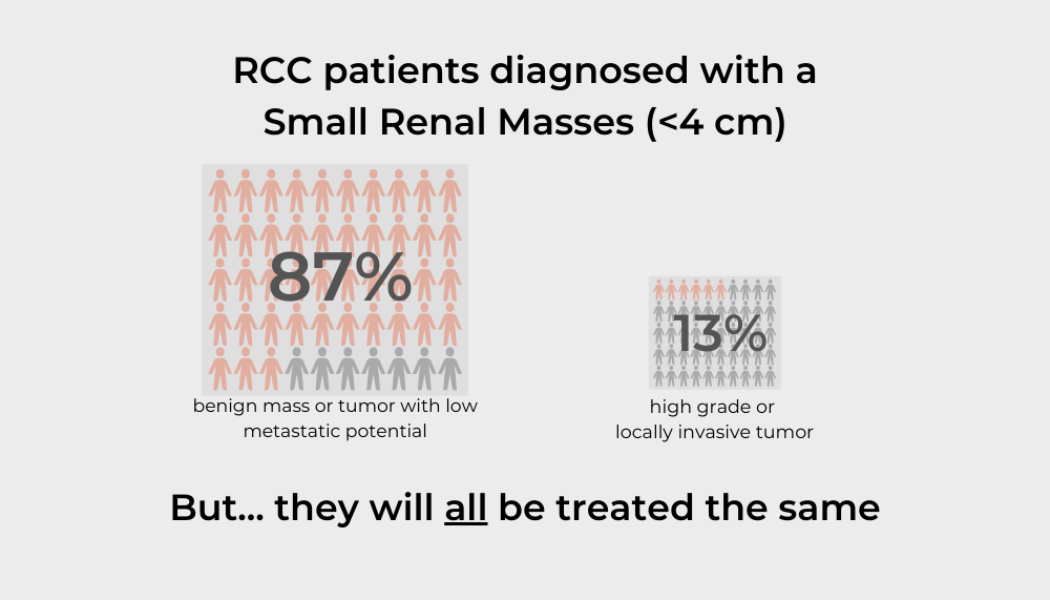Many patients will be told that they have localized kidney cancer based solely on imaging alone. This can give the impression that diagnostic accuracy of scans is higher than it actually is. While CT scans are predictive of renal cell carcinoma and are routinely used to recommend surgery – the only definitive way to know for sure whether a renal mass is cancer is surgical removal. As many as 20 percent of patients who undergo surgery for suspected RCC will not have kidney cancer.
Expanded access to CT scans has resulted in increased detection of small masses (under 4 cm) confined to the kidney. Nearly half of kidney cancer diagnoses today are stage 1 renal tumors. Research shows that at least 20 percent of these masses will be benign. Eighty percent of small renal masses that are malignant will be low grade, indolent tumors with low risk of metastatic spread. But 13 percent will be high grade and/or locally invasive.
The only way to definitively differentiate between benign masses and aggressive malignant masses is to surgically remove the tumor and/or the entire kidney. Lack of diagnostic certainty causes thousands of people to experience unnecessary and significant psychological distress (being told they might have cancer), to undergo invasive surgery that might have been avoidable and face possible reduced renal function later in life.
Over the past 30 years, surgical treatment of small renal masses has transitioned from radical nephrectomy for all renal tumors, regardless of size, to elective partial nephrectomy whenever possible. In the past 10 years, newer approaches, including renal tumor biopsy, active surveillance for select patients, and ablation, are increasingly recommended.
Most small renal masses can be safely watched using “active surveillance” (routine scans to watch for growth). But relying on surveillance can be distressing for patients. Knowing that they might have cancer in their body (even extremely indolent cancer) is not easy.
We desperately need more research and better technology that can give certainty to patients and avoid unnecessary surgery and reduce unwarranted anxiety.
Funding sources for research focused on advanced imaging, pathology and surveillance strategies are extremely limited. KCCure is committed to filling this important gap in care. Be part of the solution. Support the Localized Disease Fund and help save a kidney!









